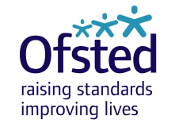Mike Sheridan, Ofsted Regional Director for London, claims many teachers misunderstand what Ofsted are looking to see during school inspections.
"Of course, all these things are decisions that schools make but we never want them to make them because they think we want to see it. We want them to make it because it's the right thing for their young people." Mike Sheridan, Ofsted Regional Director for London
To combat this, Ofsted have put together a 'mythbusting' document with a list of things they say they are not looking for but that people often think are compulsory. See a SlideShare summary of the document below.
Ofsted school inspection myths about lesson planning, grading and evaluation, self-evaluation, marking and pupil feedback
 Myth 1: Lesson planning
Myth 1: Lesson planning
"Inspectors are interested in the effectiveness of planning rather than the form it takes."
Ofsted claim it's up to the individual school to decide:
- How planning should be set out
- The length of time planning should take
- The amount of detail plans should contain
They also don't want to see individual or previous lesson plans.
Myth 2: Grading and observation
- Individual lessons aren't graded.
- Ofsted don't expect schools to carry out a specified amount of lesson observations.
- There's also no need for inspectors to see specific pay grade details of individual teachers.
Myth 3: Self-evaluation
- According to Ofsted, self-evaluation should be part of the school's business processes and not just done for inspection.
- It's up to the school to choose the format of self-evaluation that's right for their staff.
 Myth 4: Marking and pupil feedback
Myth 4: Marking and pupil feedback
"We don't expect to see any specific frequency, type, volume or written records of all feedback."
- Schools should decide their own frequency, type and volume of feedback according to their assessment policy.
- Ofsted are only interested in how marking and feedback is used to promote learning.
- The document also claims that, if Ofsted feels marking needs to improve, it will be ensured that this doesn't lead to unnecessary workload for teachers.
For more detail and to see further myths busted about pupil's work and evidence for schook inspections, check out the SlideShare.
You can also read the full document here.
What do these myths clear up for you? Is there anything else you'd like Ofsted to clarify? Get in touch in the comments section below.



Leave a comment:
Get blog notifications
Keep up to date with our latest professional learning blogs.